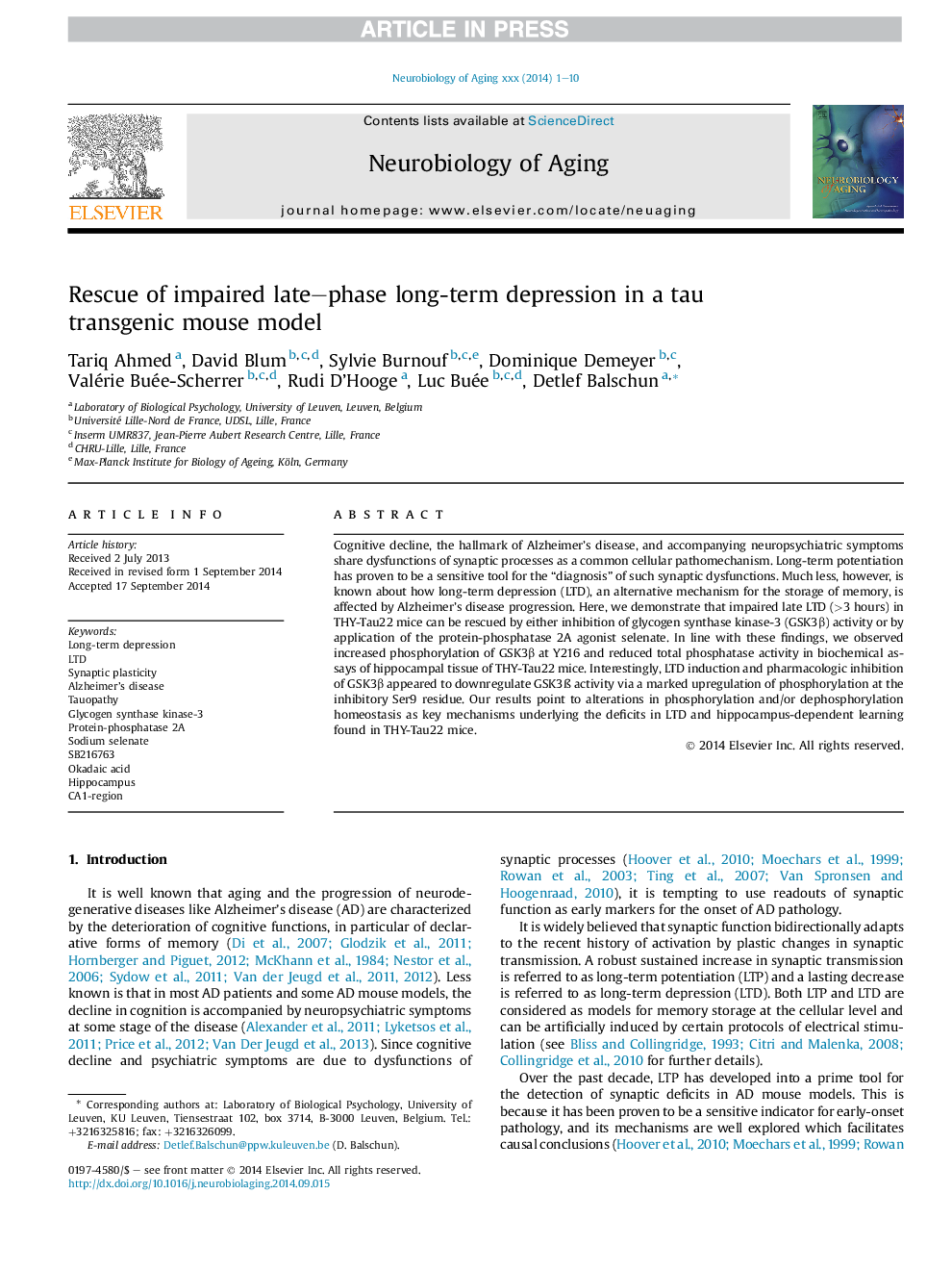| Article ID | Journal | Published Year | Pages | File Type |
|---|---|---|---|---|
| 6804766 | Neurobiology of Aging | 2015 | 10 Pages |
Abstract
Cognitive decline, the hallmark of Alzheimer's disease, and accompanying neuropsychiatric symptoms share dysfunctions of synaptic processes as a common cellular pathomechanism. Long-term potentiation has proven to be a sensitive tool for the “diagnosis” of such synaptic dysfunctions. Much less, however, is known about how long-term depression (LTD), an alternative mechanism for the storage of memory, is affected by Alzheimer's disease progression. Here, we demonstrate that impaired late LTD (>3 hours) in THY-Tau22 mice can be rescued by either inhibition of glycogen synthase kinase-3 (GSK3β) activity or by application of the protein-phosphatase 2A agonist selenate. In line with these findings, we observed increased phosphorylation of GSK3β at Y216 and reduced total phosphatase activity in biochemical assays of hippocampal tissue of THY-Tau22 mice. Interestingly, LTD induction and pharmacologic inhibition of GSK3β appeared to downregulate GSK3à activity via a marked upregulation of phosphorylation at the inhibitory Ser9 residue. Our results point to alterations in phosphorylation and/or dephosphorylation homeostasis as key mechanisms underlying the deficits in LTD and hippocampus-dependent learning found in THY-Tau22 mice.
Keywords
Related Topics
Life Sciences
Biochemistry, Genetics and Molecular Biology
Ageing
Authors
Tariq Ahmed, David Blum, Sylvie Burnouf, Dominique Demeyer, Valérie Buée-Scherrer, Rudi D'Hooge, Luc Buée, Detlef Balschun,
